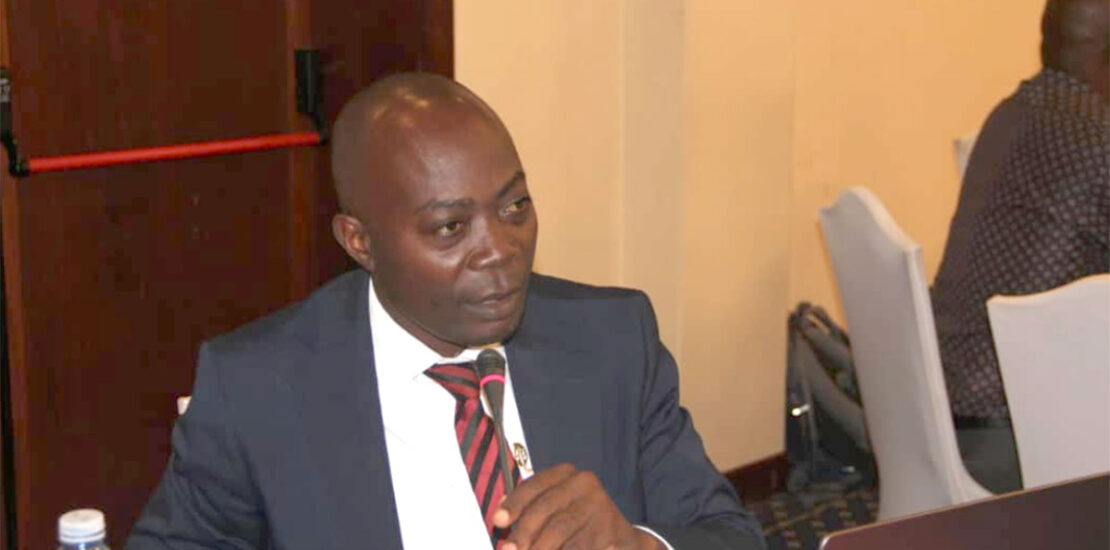Is the Law in the African Continental Free Trade Area (AfCFTA) on Intellectual Property for Africans and Their Seed Sovereignty?
- June 10, 2025
- Posted by: CEFROHT Reporter
- Category: Agroecology

CEFROHT Ramps Up Legal Pushback to Defend Farmers’ Rights to Seed Sovereignty
As African countries move to operationalise the African Continental Free Trade Area (AfCFTA), the world’s largest free trade zone by number of participating countries, critical concerns are being raised about the inclusion of intellectual property regimes that may undermine African farmers’ seed rights and sovereignty.
At the forefront of the legal resistance is the Centre for Food and Adequate Living Rights (CEFROHT), which is ramping up its legal and human rights pushback against trade and intellectual property policies that threaten Africa’s Farmer-Managed Seed Systems (FMSS) and food sovereignty.
From 13 to 15 May 2025, the Alliance for Food Sovereignty in Africa (AFSA) convened a landmark three-day continental workshop focused on the threats that emerging IP frameworks, particularly those embedded in the AfCFTA, pose to seed sovereignty in Africa. The event brought together seed activists, farmers’ movements, legal experts, academics, and civil society organisations from across the continent.
CEFROHT was invited as a key legal partner to provide technical guidance, legal analysis, and strategic direction on how African countries can safeguard the rights of smallholder farmers in the face of encroaching corporate seed regimes. The workshop marked a turning point in regional resistance to unjust IP frameworks, particularly those aligned with the International Union for the Protection of New Varieties of Plants (UPOV 1991).
The workshop sessions closely examined how the AfCFTA’s draft Protocol on Intellectual Property Rights is being shaped by the UPOV 1991 model, which grants monopoly rights to plant breeders and seed corporations for up to 25 years, restricts farmers’ traditional rights to save, reuse, exchange, and sell seeds, prioritises uniformity and market control over biodiversity, culture, and seed resilience, criminalises community seed practices, and imposes penalties for non-compliance.
CEFROHT’s legal team presented critical analysis showing how UPOV-style PVP laws threaten the very foundation of African agriculture, particularly by eroding the autonomy of smallholder farmers, displacing indigenous seed systems, and weakening food and ecological sovereignty.
At the heart of CEFROHT’s intervention was a powerful message: seed sovereignty is not just a technical or agricultural issue—it is a human rights issue.
CEFROHT advocated for an approach that centres the right to food and adequate living under international and African human rights instruments, the rights of peasants and rural workers as enshrined in the UN Declaration on the Rights of Peasants (UNDROP), the protection of traditional knowledge systems, customary seed practices, and community ownership over plant genetic resources.
It argued that legal empowerment must be proactive, preventive, and protective, rejecting IP laws that undermine sovereignty and advocating for continental and national seed laws grounded in justice, biodiversity, and rights.
CEFROHT’s participation at the AFSA workshop has ignited a series of strategic legal and policy initiatives, including building legal toolkits and training programmes to empower civil society and farmer groups to understand and challenge harmful IP regimes, supporting national and sub-regional dialogues to influence AfCFTA negotiations and push back against UPOV-aligned provisions, and expanding legal education, litigation strategies, and community seed rights documentation across East Africa.
The workshop, organised by AFSA and enriched by CEFROHT’s legal expertise, reaffirmed the growing continental momentum to challenge unjust trade laws and seed regulations that put profit over people.
The message was clear: Africa must not adopt laws that criminalise its farmers. Seed sovereignty is non-negotiable. The AfCFTA must reflect Africa’s realities, not serve foreign corporate interests.
The partnership between AFSA and CEFROHT demonstrates the power of continental collaboration and the importance of legal expertise in protecting Africa’s food systems.
As intellectual property frameworks continue to be negotiated under the AfCFTA, CEFROHT remains vigilant and proactive, challenging unjust laws, proposing equitable alternatives, and defending the dignity of Africa’s smallholder farmers.
Because at the core of seed is life. And the right to life, food, and dignity must never be patented.
